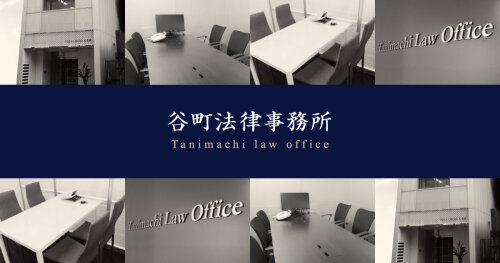Best Divorce & Separation Lawyers in Osaka
Share your needs with us, get contacted by law firms.
Free. Takes 2 min.
Free Guide to Hiring a Family Lawyer
List of the best lawyers in Osaka, Japan
About Divorce & Separation Law in Osaka, Japan
Divorce and separation are significant life events, and understanding the legal process is crucial for those residing in Osaka, Japan. Japanese family law is governed by the Civil Code, and specific rules and procedures apply to divorce and separation cases. Osaka, being a major city, has courts, professionals, and public agencies experienced in handling such cases. Individuals facing marital breakdowns often have questions about the process, their rights, child custody, property division, and support obligations. This guide provides an overview tailored for those considering or encountering divorce or separation within Osaka.
Why You May Need a Lawyer
While some divorces in Japan proceed amicably, many situations require professional legal advice and representation. You may need a lawyer if:
- You and your spouse disagree about divorce terms, such as child custody, asset division, or spousal support.
- There are international issues, such as one spouse being a foreign national or if children have dual citizenship.
- Domestic violence or abuse is present.
- You are concerned about future financial security or hidden assets.
- Your spouse refuses to participate in the divorce process or is uncooperative.
- You need help interpreting your rights and obligations under Japanese law.
- Legal documents or court proceedings need to be handled with accuracy and professionalism.
Engaging a lawyer ensures your interests are protected, your documents are properly prepared, and negotiations or disputes are addressed efficiently.
Local Laws Overview
Divorce and separation in Osaka must comply with Japanese national law, but local practices and court procedures may differ. Key aspects include:
- Types of Divorce: There are four types of divorce under Japanese law: divorce by agreement (kyogi rikon), divorce by mediation (chotei rikon), divorce by judgment (saiban rikon), and divorce by arbitration (wakai rikon).
- Jurisdiction: Divorce petitions should be submitted to the Family Court with jurisdiction over your area, which includes several courts in Osaka.
- Child Custody: Japan favors sole custody after divorce, typically granting custody to one parent. Visitation rights and parental responsibilities can be negotiated or litigated through the Family Court.
- Division of Property: Marital property is generally divided equally, with exceptions for separate assets brought into the marriage.
- Spousal and Child Support: The law provides for child support based on guidelines. Spousal support is less common but may be available under certain circumstances.
- Domestic Violence Protections: Protective orders and shelter options are available in cases involving abuse.
- International Cases: If one spouse is a foreign national or lives abroad, additional international treaties and rules may apply.
Frequently Asked Questions
What are the types of divorce available in Osaka, Japan?
There are four main types: divorce by agreement, divorce by mediation, divorce by court judgment, and divorce by arbitration. Most couples use divorce by agreement, but if parties cannot agree, mediation or court proceedings may be necessary.
Is mutual consent required for divorce?
Yes, for divorce by agreement, both parties must agree. If consensus is not reached, mediation or court procedures can be initiated.
How is child custody determined?
After divorce, sole custody is usually awarded to one parent. Factors include the child's wellbeing, living environment, and the parent's circumstances. The Family Court intervenes if parents cannot agree.
What about visitation rights for the non-custodial parent?
Visitation agreements can be negotiated between parents. If disagreements arise, the Family Court can set visitation schedules to ensure continued parent-child contact.
How is marital property divided?
Generally, property acquired during the marriage is split equally between spouses, except for pre-marital assets and certain personal items.
Can foreigners get divorced in Osaka?
Yes, foreign nationals can divorce in Osaka if certain conditions are met, such as residence in Japan or marriage registered under Japanese law. International divorces may require additional procedures.
Is spousal support mandatory?
Spousal support is not automatically granted. The court considers various circumstances, such as income disparity and necessity. Child support is more commonly awarded and follows national guidelines.
What should I do if domestic violence is a factor?
Seek immediate protection by contacting police, shelters, or local government offices. Protective orders can be requested through the Family Court, and legal assistance is strongly advised.
How long does the divorce process take?
Divorce by agreement can be concluded within weeks if both parties cooperate. Mediated or litigated divorces may take several months or even years, depending on complexity and disputes.
Do I need to appear in court for a divorce?
Court appearance is not necessary for divorce by agreement. However, mediation or contested divorces require attendance at Family Court hearings in Osaka.
Additional Resources
If you need further support or information on divorce and separation in Osaka, consider reaching out to:
- Osaka Family Court - Handles divorce, separation, child custody, and related cases.
- Japan Legal Support Center (Houterasu) - Provides free legal consultations and referrals.
- Osaka City Office Family Consultation Center - Offers guidance and support for family matters.
- Nonprofit organizations dedicated to domestic violence survivors.
- Local bar associations - Provide lawyer referrals and resources for individuals needing legal representation.
These resources can offer guidance, assistance in navigating legal procedures, and connections to qualified professionals.
Next Steps
If you are considering divorce or separation in Osaka, Japan, start by gathering all relevant documents, such as marriage certificates, records of assets, and details of children involved. Consult with a legal professional to understand your options and rights under Japanese law. If possible, communicate openly with your spouse to resolve issues out of court, as this process is generally faster and less stressful. For complex or contentious cases, engage a specialist lawyer to represent your interests and navigate the court system. Utilize local support centers and public resources for additional assistance and emotional support during this challenging time.
Lawzana helps you find the best lawyers and law firms in Osaka through a curated and pre-screened list of qualified legal professionals. Our platform offers rankings and detailed profiles of attorneys and law firms, allowing you to compare based on practice areas, including Divorce & Separation, experience, and client feedback.
Each profile includes a description of the firm's areas of practice, client reviews, team members and partners, year of establishment, spoken languages, office locations, contact information, social media presence, and any published articles or resources. Most firms on our platform speak English and are experienced in both local and international legal matters.
Get a quote from top-rated law firms in Osaka, Japan — quickly, securely, and without unnecessary hassle.
Disclaimer:
The information provided on this page is for general informational purposes only and does not constitute legal advice. While we strive to ensure the accuracy and relevance of the content, legal information may change over time, and interpretations of the law can vary. You should always consult with a qualified legal professional for advice specific to your situation.
We disclaim all liability for actions taken or not taken based on the content of this page. If you believe any information is incorrect or outdated, please contact us, and we will review and update it where appropriate.













